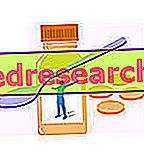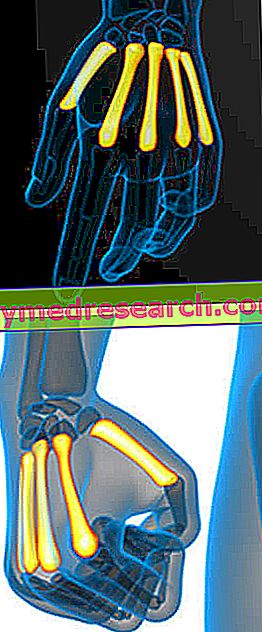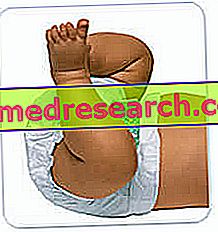Related articles: Rheumatoid arthritis
Definition
Rheumatoid arthritis is a chronic systemic disease, but it mainly involves the joints. It is an autoimmune inflammatory disease; means that the immune system, in charge of the defense of the organism, activates an abnormal response and develops an inflammatory reaction at the joint level. Initially, the target is the synovial membrane that lines the joints and produces synovial fluid, necessary for lubricating and nourishing the articular cartilage. The inflammation, therefore, damages the cartilage causing its erosion and, later, involves the bone and the surrounding tissues. They result in pain and deformities that limit the ability to perform normal daily activities.
Over time, rheumatoid arthritis can also involve other organs and systems, such as skin, eyes, lungs, heart, blood vessels and kidneys.
The causes that cause the disease are still unknown, however various factors have been identified that can contribute to its onset. Today it is known that there is a genetic predisposition associated with environmental factors (eg bacterial or viral infections).
Rheumatoid arthritis mainly affects women and occurs mostly between 35 and 50 years.
Most common symptoms and signs *
- Ankylosis
- Anorexia
- Aortite
- Asthenia
- Muscular atrophy
- Increase in the ESR
- Dry mouth
- Swollen arms
- Cardiomegaly
- Swollen ankles
- coxalgia
- Hammer finger
- Neck pain
- Knee pain
- Elbow pain
- Heel pain
- Hip pain
- Hand and wrist pain
- Arm pain
- Pain associated with chewing
- Back pain
- Articolar pains
- Muscle pains
- Eosinophilia
- erythromelalgia
- Temperature
- Tingling in the right arm
- Tingling in the Left Arm
- Tingling in the right hand
- Tingling in the hands
- Tingling in the legs
- Joint swelling
- Insomnia
- Muscular hypotrophy
- Tearing
- Leukopenia
- Livedo Reticularis
- Backache
- Metatarsalgia
- Multiple pulmonary nodules
- Nodule
- Solitary pulmonary nodule
- osteophytes
- Osteopenia
- Weight loss
- pneumothorax
- Rheumatism
- Joint stiffness
- Articular noises
- Eye dryness
- Raynaud's syndrome
- Spinal stenosis
- Bone swelling
- Nails with vertical lines
- Articular Pouring
- Pericardial effusion
- Pleural effusion
Further indications
The characteristic symptoms of rheumatoid arthritis are pain, morning stiffness and swelling of the affected joints, with limited movement and function. Stiffness is more intense in the morning when you wake up and can last an hour or more. The most commonly affected joints are those of the fingers and toes, wrists, ankles and knees; the involvement of shoulders, elbows and vertebral column is rarer. The joints are typically symmetrically inflamed (the disease affects the same joints on both sides of the body). The progressive destruction of the articular structures is followed by symptoms external to the affected joint, indicative of a systemic involvement of the disease; these include fatigue, muscle soreness, loss of appetite, dry eyes and mouth, low fever and general malaise. Furthermore, under the skin of the elbows, hands and feet, small bumps develop, called rheumatoid nodules. In severe rheumatoid arthritis, visceral nodules can also arise, usually asymptomatic, especially in the lung.
The diagnosis of rheumatoid arthritis is based on specific clinical criteria and on instrumental and laboratory tests. In particular, patients must present morning joint stiffness (for a time equal to or greater than 1 hour), symmetrical arthritis, rheumatoid nodules, positivity for rheumatoid factor, joint erosions or presence of bone decalcification.
There is currently no definitive cure for this disease, however there are drugs, physical therapies, and, sometimes, surgical interventions that can reduce symptoms and prevent the appearance of permanent damage. The drugs used in the treatment of rheumatoid arthritis are of different types: non-steroidal anti-inflammatory drugs and corticosteroids for immediate relief from symptoms; disease-modifying antirheumatic drugs (methotrexate, hydroxychloroquine, salazopirin, cyclosporin, azathioprine, etc.) to achieve long-term control of rheumatoid arthritis and slow progression.



